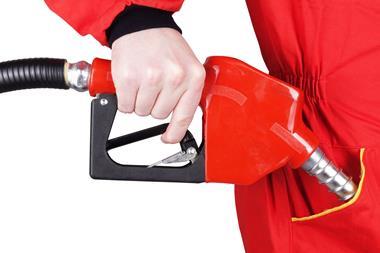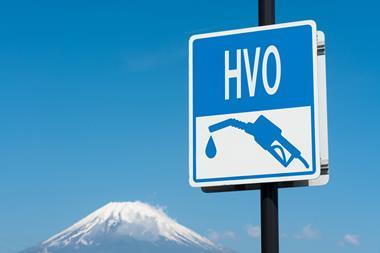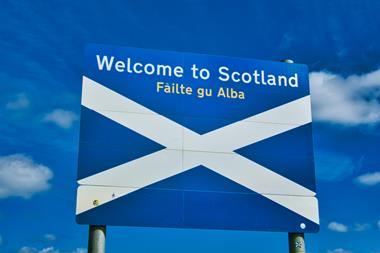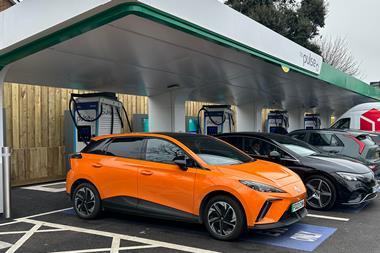The industry faces a "huge challenge" in trying to develop and supply the next generation of eco fuels, according to the latest Statistical Review from the UK Petrolem Industry Association (UKPIA). It says we can expect to see global
energy demand rise by almost 50% in the next 20 years, which means the industry will need to trial a whole host of biofuels and alternatives in the next few years.
The use of alternative fuels formed the main focus of this year’s Review, with UKPIA warning: "We face a huge challenge in continuing to provide secure, affordable sources of energy supply in the future while also meeting substantial carbon reduction targets proposed under international agreements such as UN FCCC, Kyoto, or the EU Climate Change Strategy and the UK’s Climate Change Act, aimed at stabilising the rate of growth in the greenhouse gas emissions."
It continued that, by 2030, the International Energy Agency’s ’Reference Scenario’ (assuming there would be changes in energy and environment policies) estimated global energy demand was likely to be about 45% higher than in 2007, notwithstanding the current severe global slowdown. Most of this extra growth would be driven by population expansion, higher standards of living and burgeoning economies such as China, India, the Middle East, Asia and Latin America, and was expected to be mostly met by fossil fuels - oil, gas and coal. But researchers found this demand was unsustainable, even with alternative fuels, saying more emphasis would need to be put on reducing demand and on energy efficiency.
Road transport energy demand in the UK had reached a plateau at 47 billion litres of fuel annually, with efficiency improvements offsetting the increased mileage. Alternative fuels were emerging as well as electric power "which hold out the potential to use electricity generated from renewable, low carbon or carbon sequestrated sources". But it warned that, for the foreseeable future, there were no indications of clear "winners", adding "the shift to alternative fuels and energy sources is unlikely to be seamless and in reality a whole range of alternative fuels and technologies will be employed in the early years".
Regarding the Renewable Transport Fuels Obligation (RTFO), UKPIA said the industry was working hard to meet government targets. Bioethanol consumption stood at 208 million litres in 2008/9, which represented 0.9% of all UK petrol sales by volume - the low sales volumes reflected the economic and logistical difficulties of adding bioethanol to petrol. In contrast, biodiesel consumption rose to 1,026m litres from 365m litres the previous year, representing 4% of diesel sales by volume.
In all, it was estimated drivers paid £24.6bn in fuel duty plus £7.5bn in VAT in the tax year 2008/09, a combined figure that was comparable to the UK’s annual expenditure on defence. The report also revealed that in 2007, UK sales by UKPIA member companies showed a slight increase on the previous year’s sales at £84bn. This rise was a reflection of higher crude oil prices which led to higher product prices.
The report stated there were around 115 refineries in the EU, with nine in the UK (down from a high of 19 in 1975). There were three other smaller speciality refineries in the UK producing bitumen and other products.
In 2007, the UK had the fourth largest refining capacity in Western Europe at over 1.8 million barrels a day. Since the refinery closures of 1997 and 1999, UK refinery throughput had fallen from its recent peak of 97 million tonnes of crude oil to 80 million tonnes in 2008. Over 80% of refinery crude was from the North Sea and 8% arrived from Russia and the Middle East. About 63% of oil products produced in the UK were delivered to the UK market.
With road transport, the prediction was that from 1990 to 2025 demand would have grown by almost 60%. Petrol sales were about 22 billion litres in 2008 - down from a peak of 33 billion litres in 1990. Diesel sales fell slightly in 2008, to about 25 billion litres because of high prices and the credit crunch. The sales split was 47% petrol, 53% diesel.
Average annual petrol prices rose for the sixth consecutive year in 2008 due to an increase in crude oil prices and strong global demand. The pre-tax price of major brands of unleaded petrol was again the lowest in Europe, but the price paid by UK drivers was one of the highest - duty and VAT represented 62% of the average pump price.
In the forecourt sector, the only section of the retail market in growth was big supermarkets. At the end of 2008 there were 1,205 supermarket sites, representing 13% of the market but accounting for 40% of retail fuel sales.
The number of forecourts per capita was highest in Northern Ireland, at just over 310 sites per million people in 2007 - compared to about 142 sites per million in England.
According to UKPIA, reducing pollution was a key driver for the oil industry, and air quality has improved in the past few years.Variable weather had also played a vital role, with the hot summers of 2003 and 2006 resulting in high pollution levels mainly caused by ozone. And the industry is working hard to cut greenhouse gasses by 80% by 2050, relative to 1990 levels in line with government targets. Road transport produced about 22% of the UK’s CO2 emissions, and CO2 accounted for about 85% of the UK’s man-made greenhouse gas emissions in 2007.
Safety standards remained high, with the report noting that particularly strong improvements had been made in contractor safety since the 1990s, helped by the introduction of the Contractor Safety Passport Scheme in 1999.

































No comments yet